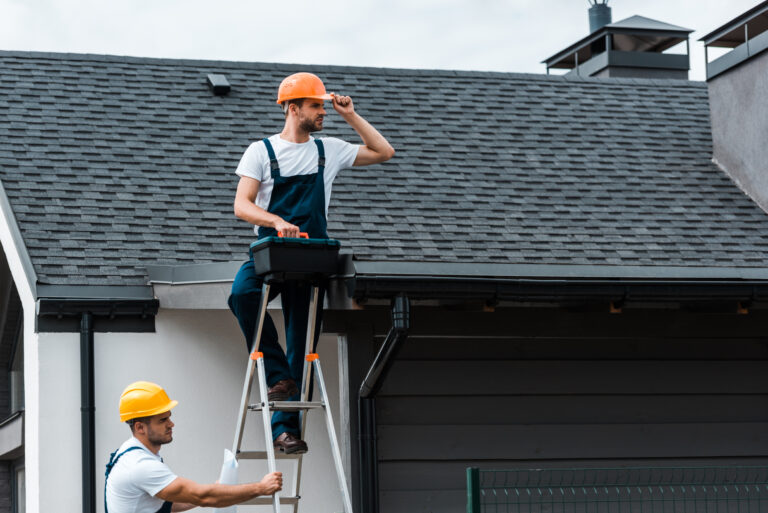
Keeping your commercial building’s roof in optimal condition is vital to protecting your investment and maintaining a comfortable, efficient working environment. A well-maintained roof ensures the durability of the roofing system and helps prevent potential damage or costly repairs. One key aspect of commercial roof maintenance is regular roof inspections, which enables you to identify and address any potential issues before they escalate into expensive and disruptive problems.
In this article, Preferred Home Services will explore the importance of routine commercial roof inspections and their role in maintaining a durable and efficient roofing system. We will discuss the benefits of regular inspections, the frequency at which they should be conducted, and the key components of a thorough inspection. Finally, we will provide guidance on selecting the right commercial roofing service provider to perform high-quality, reliable, and comprehensive inspections for your establishment. With a proactive approach to your commercial building’s roof maintenance and inspections, you can ensure the long-term performance and longevity of your roofing system.
Why Regular Roof Inspections Matter
- Early Detection of Issues: Routine inspections enable you to identify and address potential problems with your roofing system before they become significant and costly. Early detection of leaks or damage can save your business from unnecessary downtime, water damage, and expensive repairs or even replacements.
- Increased Roof Longevity: By addressing minor issues promptly, you can prolong the life of your commercial roof, thus maximizing your investment. Regular inspections can help you avoid premature roof failure and the extensive costs associated with it.
- Enhanced Energy Efficiency: A well-maintained roof contributes to your building’s overall energy efficiency, impacting the cost of heating and cooling the interior. Identifying areas where the roof’s insulation or ventilation may be compromised enables you to address those issues, leading to energy savings in the long run.
- Compliance with Warranty Requirements: Many commercial roofing warranties require routine inspections and maintenance to remain valid. Regularly scheduled inspections can help you avoid unintentional voiding of your warranty, which could result in denied coverage for repairs or replacements.
Determining the Frequency of Roof Inspections
While the specific frequency of roof inspections may vary based on factors such as building age, location, and roofing materials, it is generally recommended to have your commercial roof inspected at least twice per year. Best practices suggest scheduling inspections in the spring and fall, giving you the opportunity to address any issues that may have arisen during the harsh winter or summer months.
In addition to biannual inspections, it’s crucial to schedule an inspection after severe weather events like storms, hail, or heavy snowfall, which can potentially cause damage to your roof.
Key Components of a Thorough Commercial Roof Inspection
- Visual Inspection: A professional roofing technician will perform a visual inspection of your entire roofing system, both from the ground and up close. They will look for signs of damage or wear, such as cracked or missing shingles, damaged flashing, and sagging or ponding areas.
- Drainage Evaluation: Proper drainage is crucial for preventing water damage and prolonging the life of your roof. Roof inspectors will assess the gutters, downspouts, and other drainage components to ensure water is effectively diverted away from your building.
- Inspection of Rooftop Equipment: Commercial roofs typically house various equipment, such as HVAC units, ventilation systems, or skylights. A thorough inspection will include assessing these components for any damage or wear that may impact the overall integrity of the roof.
- Interior Assessment: Roofing issues can often manifest in the interior of your building. Inspectors will examine the attic, ceilings, and walls for signs of leaks or moisture damage, which may indicate more significant problems with your roof.
Selecting the Right Commercial Roof Inspection Service Provider
To get the most out of your commercial roof inspections, it is essential to partner with a professional and reputable service provider. Here are some factors to consider when choosing a roofing company for inspections:
- Licensing and Certification: Ensure the roofing company is licensed and holds industry certifications that demonstrate knowledge of and compliance with regulations.
- Experience and Reputation: Choose a service provider with an established reputation in the commercial roofing industry, as this indicates their expertise in handling a range of roof types and issues.
- Comprehensive Services: Opt for a company that offers a complete suite of services, from inspections and maintenance to repairs and replacements. This ensures that all of your roofing needs are addressed by a single, trusted provider.
- Clear Communication and Transparency: A reliable roofing service provider should prioritize clear communication and transparency in their work. Look for a partner who will keep you informed throughout the inspection process and provide detailed reports of their findings, along with recommendations for any required repairs or improvements.
Conclusion
Regular commercial roof inspections are crucial for maintaining the durability and efficiency of your roofing system. By detecting potential issues early, prolonging the life of your roof, and ensuring optimal energy efficiency, these inspections can greatly benefit your business’s bottom line. Trust the professionals at Preferred Home Services to conduct comprehensive and reliable commercial roof inspections, helping to keep your building’s roofing system in top condition for years to come.


